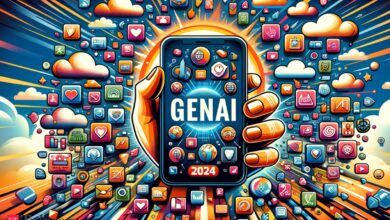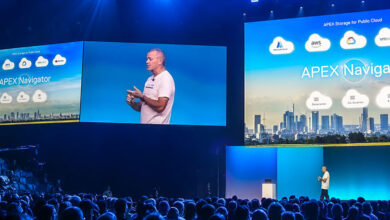How generative AI is already reshaping the hospitality industry

How will generative AI make a meaningful impact on the hotel industry? The possibilities surrounding AI implementation are vast and top of mind for hotel owners, investors, operators and other hospitality industry stakeholders. PwC estimates that by 2030 AI will potentially contribute some $15.7 trillion to the global economy, a reason why major hotel chains are already investing millions into AI with startups already providing creative contributions to AI in hospitality.
In this case study, we’ll look at some startup—Legends and Lilo Hotel Supplies—which are utilizing AI as a foundation of its platform, and also look at how revenue management platform IDeaS continues to incorporate AI to enhance its systems. We’ll also analyze three of the many opportunities for improvement with the use of AI in the hotel industry: personalized marketing, inventory management and revenue management.
1. Personalized Marketing
How Legends creates opportunities to target the right customer with the right deal at the right time
Truly personalized marketing is a leading theme of the generative AI movement: targeting the right customer with the right deal at the right time. Highly personalized hotel marketing becomes easier with AI models, analyzing extensive datasets and employing predictive analytics to anticipate customer behavior and market trends, allowing hotels to make more impactful marketing strategies and informed, data-driven decision-making.
Glenn Fogel, CEO of Booking Holdings, emphasizes the potential of AI in the travel booking industry to deliver highly personalized experiences for users. He draws a parallel to the days when human travel agents provided personalized service: “You want to see something that is personalized so much so that it’s just like it was in the old days when there was a human being travel agent who knew you, who knew you so well, they knew what you liked, they knew what you could afford, and they would present you a few options that would pretty much be, and then you would go back and you’d whittle it down,” he said in 2023.
By leveraging AI, the goal is to enhance the user experience in the booking process, making it more efficient and tailored to each individual.
Legends, a consumer-powered data platform, has created tools for brands to capture, transform and enrich new and existing customer data, for hyper-personalization and segmentation. Legends is utilizing zero-party data, data that a customer intentionally and proactively shares with a business, to unlock new levels of personalization. A picture is worth a thousand words and Legends utilizes the power of a user’s camera roll to analyze their profile. Through the metadata of each photo, Legends analyzes the unique patterns and trends of each traveler to develop their “travel DNA,” and marketers can utilize this “travel DNA” to tailor ads to the right person at the right time.
Predictive algorithms are highly dependent on large amounts of data as well as accurate data and with consumers actually handing over their data (in exchange for travel deals and experiences), marketers can target these consumers with more confidence and ensure customer satisfaction.
2. Inventory Management
How Lilo saves time & energy for hotels driving 7-9% cost savings
Inflation is a significant challenge that hoteliers have faced since the pandemic. Efficient inventory management is incredibly important in navigating rising costs and AI has created opportunities to track inventory in real time, accurately forecast demand, and boost efficiency, ultimately driving significant cost savings.
The automation of the forecasting process is a critical endeavor that involves constant fluctuations in micro and macro inputs, with outliers, noise, seasonal shifts, irregularities and overlapping patterns contributing to the challenge of accurately predicting outcomes.
In the hotel space, inventory management is crucial to ensure optimal stock levels, meet guest demands promptly, minimize waste and operate as efficiently as possible. AI plays a pivotal role by analyzing historical sales data and incorporating external factors such as market trends, seasonal fluctuations, and macro-economic events to predict future product demand. Lilo specifically assists hotel general managers in thinking and making decisions on tasks like forecasting, sourcing vendors, placing orders, paying, consolidating invoices and assisting with accounting, across all hotel sizes and locations, saving hours of work and ultimately bottom line with an estimated 7% to 9% cost savings every month.
By automating intricate processes, delivering insightful analytics and facilitating real-time decision-making, Lilo transforms the traditional challenges of inventory management into free time for hotel managers to focus on other aspects of the business.
3. Revenue Management
How IDeaS is enhancing user experience in through AI
Arguably, revenue management has long been dependent on AI, with algorithmic modeling serving as its foundational core. With this new wave of AI, there are opportunities to enhance these algorithmic modeling capabilities, leveraging machine learning, to further shape strategies and outcome, by incorporating additional data sets. AI allows these predictive models to ingest additional data sets, and lets the system decide when the data set is applicable for each specific scenario. As algorithmic modeling enters a new era of opportunity, the integration of machine learning not only enhances modeling capabilities but also empowers strategies by incorporating diverse data sets, enabling a more nuanced and adaptive approach to optimizing revenue outcomes.
Another opportunity to enhance revenue management systems is to improve the user interface with hotel owners, using chatbots to answer questions such as: “Why is my forecast so high next week?” And, “Can you help me adjust my price floor?”
Klaus Kohlmayr is chief evangalist and development officer at IDeaS Revenue Management, a revenue management SaaS company, which partners with more than 30,000 properties. He is a big believer of AI. “The next wave of AI will make interaction with the system more efficient, with customer support help answering questions instantaneously,” he said.
Embracing innovative solutions, such as incorporating chatbots into the user interface for direct interaction with hotel owners, provides a significant opportunity for improvement and instantaneous answers to queries through customer support demonstrate the potential for seamless integration, pointing towards a future where AI not only refines forecasting but also enhances the overall user experience for hotel owners.
The evolution of revenue management systems extends beyond algorithmic advancements and the next wave promises increased efficiency in system interaction, another incredibly valuable improvement to revenue management with artificial intelligence.
The hotel industry is on the brink of transformation with the pervasive influence of generative AI. Major players are investing in AI, as startups, such as Legends and Lilo, showcase innovative solutions addressing personalized marketing and inventory management challenges. With companes like IDeaS Revenue Management incorporating AI to enhance user experiences, these advancements represent a paradigm shift, ushering in a future where AI-driven efficiency, personalization and data-driven decision-making redefine the landscape of the hospitality sector.
Story contributed by Naz Aydin, co-founder of the Destination AI Summit, which will be held in Washington, D.C., in September 2024. Registration is currently open.



